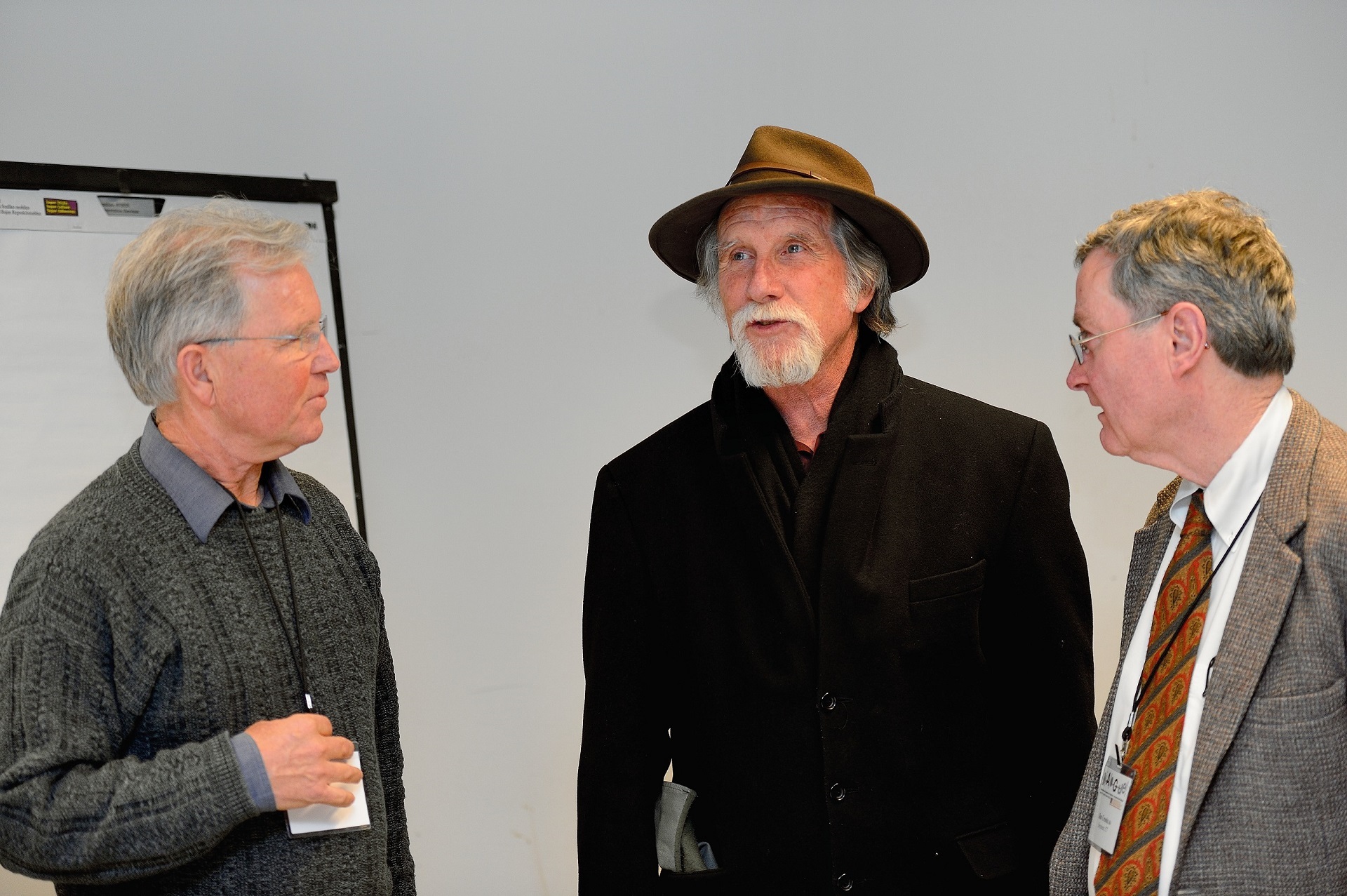Families and Carers
May 4, 2023 2023-05-04 7:40Families and Carers

Family members and carers involvement in ISPS
ISPS welcomes and encourages the involvement of family members and carers in the society and is constantly looking for ways to expand their participation. The International Conference of ISPS in New York (2015) attracted a greater number of family members than any previous conference, several of the presentations and workshops included family members. In 2019 the first family member was elected onto the Executive Committee, Jen Kilyon. ISPS maintains an e-mail discussion group for ISPS members who are carers / have a family member with psychosis. The members of the group offer each other support, discuss and debate issues relevant to their experiences, and liaise with the ISPS Executive Committee. If you are interested in joining the email group please contact isps@isps.org
Further information for families of persons with psychosis can be found on our Learning Tools pages.
Resource List from the ISPS FAMILY panel:
www.familieshealingtogether.com Online course for families of people with psychosis
www.psychosissummit.com Interviews with family members
www.cmha.ca A sibling’ guide to psychosis
www.earlypsychosis.ca Focus on early intervention
www.cmha.ca A sibling’s guide to psychosis
www.earlypsychosis.ca Focus on early intervention
www.nami.org National Alliance for Mental Illness
www.hearingvoicesusa.org and www.hearing-voices.org The International Hearing Voices Network website lists Hearing Voices groups around the world and houses some great information on understanding voices.
www.mindmapct.org Early intervention in New Haven Conn, USA
www.engagenz.co.nz Mental health resources by people with lived experience and a psychological perspective including an Online Resources Pack, a New Zealand-focused Community Resources Directory, a book of recovery stories and an online coping tool called The Coping Kete.
www.toiora.co.nz An arts centre in New Zealand for people who experience mental-health problems to engage in creative activities. The website shares poetry and art by the members.
www.mentalhealthexcellence.org/projects/families-healing-together
www.madinamerica.com Mad in America
www.madinamerica.com/2015/02/need-know-starting-drug-mental-healthproblem/
http://recoveryfromschizophrenia.org/ Includes Ron Unger’s e-book Helping Reduce Medications
www.intervoiceonline.org Intervoice Website
www.facebook.com/groups/intervoice/10152527354676230/ Intervoice Facebook Page: shares a lot of really interesting posts about hearing voices and other extreme experiences.
www.tandfonline.com/loi/rpsy20#.VR3KsuH3Mwc Psychosis: Psychological, Social and Integrative Approaches. The peer-reviewed journal of ISPS is an excellent source of information about psychosis and strategies that can help. A subscription is required (free with ISPS membership) to read full-text articles online and receive 4 printed journals a year.
http://beyondmeds.com Beyond Meds: A website about alternatives to medication
www.comingoff.com Coming Off: A UK website that shares information about coping with coming off psychiatric medications.
www.umassmed.edu/psychiatry/globalinitiatives/opendialogue/ Open Dialogue initiative at the University of Massachusetts: shares information on the key components of this approach.
www.reddit.com/r/schizophrenia/ Reddit is a website where people post discussion items and questions on particular subject threads known as Subreddits. There are active subreddits for Schizophrenia and Bipolar along with many other mental-health related topics mostly used by lay-people who are seeking support and information.
www.calm.auckland.ac.nz/ CALM: Computer Assisted Learning for the Mind. A website of downloadable digital recordings of mindfulness, relaxation, breathing and other exercises for coping with stress.
www.dbtselfhelp.com/ DBT Self Help shares information about Dialectical Behaviour Therapy, from people who have participated in DBT. A good source of information about coping with, communicating and understanding intense emotional states.
“Getting my own therapy” a suggestion from other family members: someone neutral to talk to about what this all means for you
“Personal support networks” another family member suggestion was to seek support from trusted family and friends rather than attempt to manage everything alone – help with meals and housework during crisis times or a break for a few hours of uninterrupted sleep can make a real difference.
“Seeking out recovery stories” another family member suggestion – fuel for maintaining a hopeful stance.
“How to touch a hot stove” The Hots Stove Project (thehotstoveproject,org) has a resource page. It also has an excellent film on mental health stigma called “Hot to Touch a Hot Stove” and a supplementary film called “CRAZY?” Additionally, it has clips of several interviews with professionals, with individuals having lived experience, and with some who are professionals with lived experience.
Books
Anatomy of an Epidemic, Robert Whittaker
Rethinking Madness, Paris Williams
The Happiness Trap, Russ Harris – Acceptance and Commitment Therapy strategies for coping with stress and distress
The Bitterest Pill, Joanna Moncrieff
A Straight Talking Introduction to the Causes of Mental Health Problems, John Read – An easy-to-read, non-pathologising, non-blaming, short book summarizing the research on what causes mental-health problems.
Models of Madness, Read, Mosher and Bentall
Coming off Psychiatric Drugs: Harm Reduction Guide, 2nd Edition, by Will Hall – e-book available here: www.theicarusproject.net/downloads/ComingOffPsychDrugsHarmReductGuide2Edonline.pdf
http://familieshealingtogether.com/focus/recovering-our-hope/
Older news
Recommended books and films for family members
‘Henry’s Demons’ by Patrick and Henry Cockburn
http://www.guardian.co.uk/books/2011/feb/26/henrys-demons-patrick-henry-cockburn
‘Anatomy of an Epidemic: Magic Bullets, Psychiatric Drugs, and the Astonishing Rise of Mental Illness in America’ By Robert Whitaker
Http://Www.Amazon.Com/Books/Dp/1455884197
‘Regular And Decaff’ By Andrew Gadke
http://www.regularanddecaf.com/
Films by David Mackler
Useful websites for family members and carers of people with psychosis: This list has been compiled by members of the ISPS e-mail group for families and carers of people with psychosis.
The Soteria Network
http://www.soterianetwork.org.uk/index.php
Mental Health Care, information about psychosis for family members
http://www.mentalhealthcare.org.uk/support_for_carers
King’s College London, family intervention for psychosis
http://www.kcl.ac.uk/iop/about/difference/Family-intervention-for-psychosis.aspx
NHS advice for carers
http://www.nhs.uk/CarersDirect/carers-learning-online/Pages/carers-online-learning.aspx
EUFAMI, European Federation of Associations of Families of People with Mental Illness
The Meriden Family Work Programme is a UK based training and organisational development programme, which has been promoting the development of family-sensitive, evidence-based mental health services since 1998, with a particular emphasis on the implementation of family work. It is an NHS programme with extensive experience of working with organisations to ensure families remain at the heart of quality mental health service delivery.
http://www.meridenfamilyprogramme.com/carers.php
Power2u is an empowerment center with Daniel Fischer, a psychiatrist with psychosis
Websites – suggested reading
http://www.goodreads.com/book/show/1085313.The_Complete_Family_Guide_to_Schizophrenia

